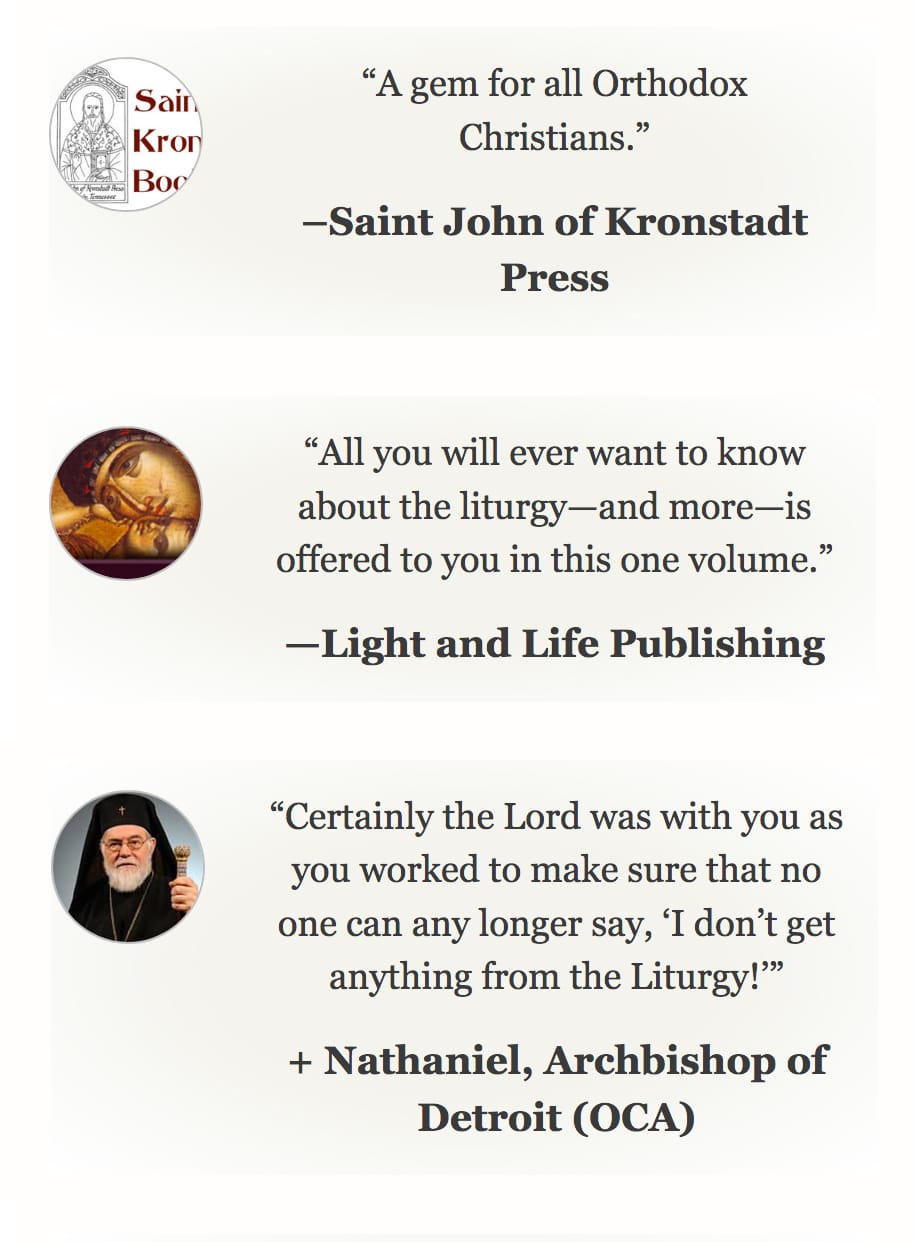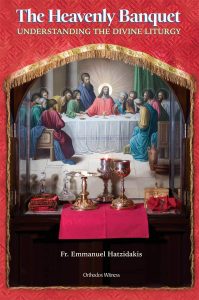Fr. Thomas Hopko speaks about The Heavenly Banquet
Transcript excerpt from Fr. Hopko's Ancient Faith podcast:
"In 2008, an absolutely spectacular book was written, an extraordinary book, written in English on the Divine Liturgy, by Fr. Emmanuel Hatzidakis. This book is called The Heavenly Banquet: Understanding the Divine Liturgy. It’s a huge book, really huge book. It’s published by Orthodox Witness in the year 2008: The Heavenly Banquet: Understanding the Divine Liturgy. Fr. Emmanuel, really this is a life work. It’s a spectacular book not only in what he himself comments, but all the glossary that’s there, the bibliography that’s there, all the quotations of the Church Fathers and modern writers that are there. It’s just totally awesome. The bibliography itself in this book has 305 entries. The book, which is a very large size book—the format is very large—is well over 400 pages long. I think it’s about 400 and—let me just look; I’ve got it in my hands right here—it’s 420 pages long. It’s a big book, and it’s just chock-full of information. It’s just chock-full of prayers, of commentary, of theological notations, of translation notations, of all kinds of things. It’s impossible even to say how much material is in this marvelous book.
"I think anyone who’s really interested in the Divine Liturgy of St. John Chrysostom [should read it]. That’s basically what he’s commenting here, although I do think he also refers to St. Basil’s liturgy, where there’s a little bit [of] differences, and of course St. Basil’s is longer, and the text is different in the actual anaphora, but as we’ll see in my reflections, I’ll show the differences between St. John Chrysostom and St. Basil, and they only exist in the Liturgy of the Faithful, in the actual Eucharistic prayers, of the second part of the Divine Liturgy. The first part of the Divine Liturgy is the same [of the liturgies of] St. John Chrysostom and St. Basil the Great, basically the same.
"But Fr. Emmanuel Hatzidakis is also commenting on the Liturgy the way that it exists today, how it is given to us to serve today, and then he deals with a lot of variant practices and differences here and there between different traditions, Slavic or Byzantine, the Greek or the Russian. It is just a wonderful book. I could not recommend it too highly, that anyone who is really interested in this, and certainly church school teachers, priests—I think all priests should own this book, and just little by little read through it; it will be a treasure of learning from these books.
"So there are plenty of books and writings about the Divine Liturgy. I’ve just mentioned the most well-known among the Orthodox authors. There’s some Roman Catholic authors who also write about the Byzantine rite. The three most famous that I would know of are Robert Taft, Juan Mateos, and Aidan Kavanagh. Fr. Mateos, Fr. Taft, they are from [the] Roman Catholic Church, working in Rome itself [at] the Oriental Institute. Then Aidan Kavanagh, [who] I believe recently departed this life, was for years teaching at Yale. He also wrote on liturgical themes.
"Probably no one has commented the liturgies more technically than Robert Taft and Juan Mateos. They were the teachers of some of the people who are teaching liturgy now in Orthodox churches, Dr. Paul Meyendorff at St. Vladimir’s Seminary, Fr. Alexander Rentel at St. Vladimir’s Seminary, Sister Vassa Larin, a nun in the Russian Orthodox Church Outside Russia (ROCOR). She did her doctorate with Fr. Taft also, studying in great detail the Divine Liturgy as it is celebrated in the Orthodox Church today, and studying it very technically. That means: how did it develop in history, what are the earliest sources, what are the manuscripts that we have of it: the famous Codex Barberini, which has the Liturgy in, I think it is, the tenth century pretty much the way it exists still today, basically the same. There are a lot of studies about it. If you get Fr. Emmanuel Hatzidakis’ book and look at the 305 entries in the bibliography—mostly in English, not only: some in Greek and other languages—you’ll see how much available material there is and how many studies there are and essays there are about the Liturgy."
Listen to or read the entire podcast here.

